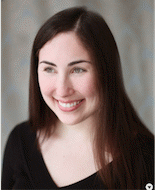My guest today is May Schenwar, Editor-in-Chief of Truthout and author of Locked Down, Locked Out: Why Prison Doesn't Work and How We Can Do Better, which was released by Berrett-Koehler Publishers in November. Welcome to OpEdNews, Maya. Why did you write this book?
I'd been involved in prison-related journalism (writing, commissioning, editing) for about a decade. But with the book, I wanted to do something larger than documenting particular flaws in the system, or ways in which it was "failing," or specific injustices. I wanted to create a broad portrait of a system that does exactly the opposite of what many people think it does, and I wanted to do that by focusing not on money or theory or statistics--though all of those things are important--but on people. I wanted to weave together the stories of many different folks and their families, showing the ways that prison breaks apart bonds and destroys lives and communities, particularly black and brown communities. And I wanted to simultaneously demonstrate that there is another way, or many other ways--that prison is not a "necessary evil," and that there are ways of being and doing that bring us closer together rather than further apart. You can't do all that in an article-length piece, and so--book!
When you say, "incarceration isn't violence prevention, it's violence itself," that's a statement that a lot of people don't immediately accept. Confronting this topic head on meant I needed time and space to have long and sometimes uncomfortable (and ultimately, joyous) conversations with the reader, examining our assumptions and missteps and tragedies and thinking about what collective safety might look like.
The first half of your book deals with the on and off incarceration of your sister. That's pretty up close and personal. Was it a hard decision to break the boundary between the Maya journalist and Maya the sister and best friend of someone in and out of prison? Did your family and particularly your sister support this approach?
Yes, my family was fully supportive. If they weren't I couldn't have written the book. The first people who read my first draft were my parents and my sister. (I worked on that draft for a year and didn't really breathe out until my sister told me she liked it!)
And yeah, it was a hard decision to break the boundary between "journalist Maya" and "person Maya," but really, I think that more journalists should be acknowledging that they're people--so once I did it, I found I was able to write a whole lot more easily and naturally. The personal connection to the topic was why I'd gotten so invested in it, and bringing my family's experience to the table allowed me to do something unique with the book. Too often, you have people writing about prison or the criminal legal system pretending to be these "neutral," "ethnographic" observers, and I think that can be really dangerous.
However, the personal element did mean the writing process was even more emotionally hectic than it might have been otherwise. It was a raw, vulnerable process. Many times throughout the writing of the book, I wished I'd never proposed it. But now I am enormously glad that I made an effort to break down that often-illusory divide between "systemic" and "personal"; it seems to be one of the things people appreciate most about the book.
Next Page 1 | 2 | 3 | 4 | 5 | 6
(Note: You can view every article as one long page if you sign up as an Advocate Member, or higher).






